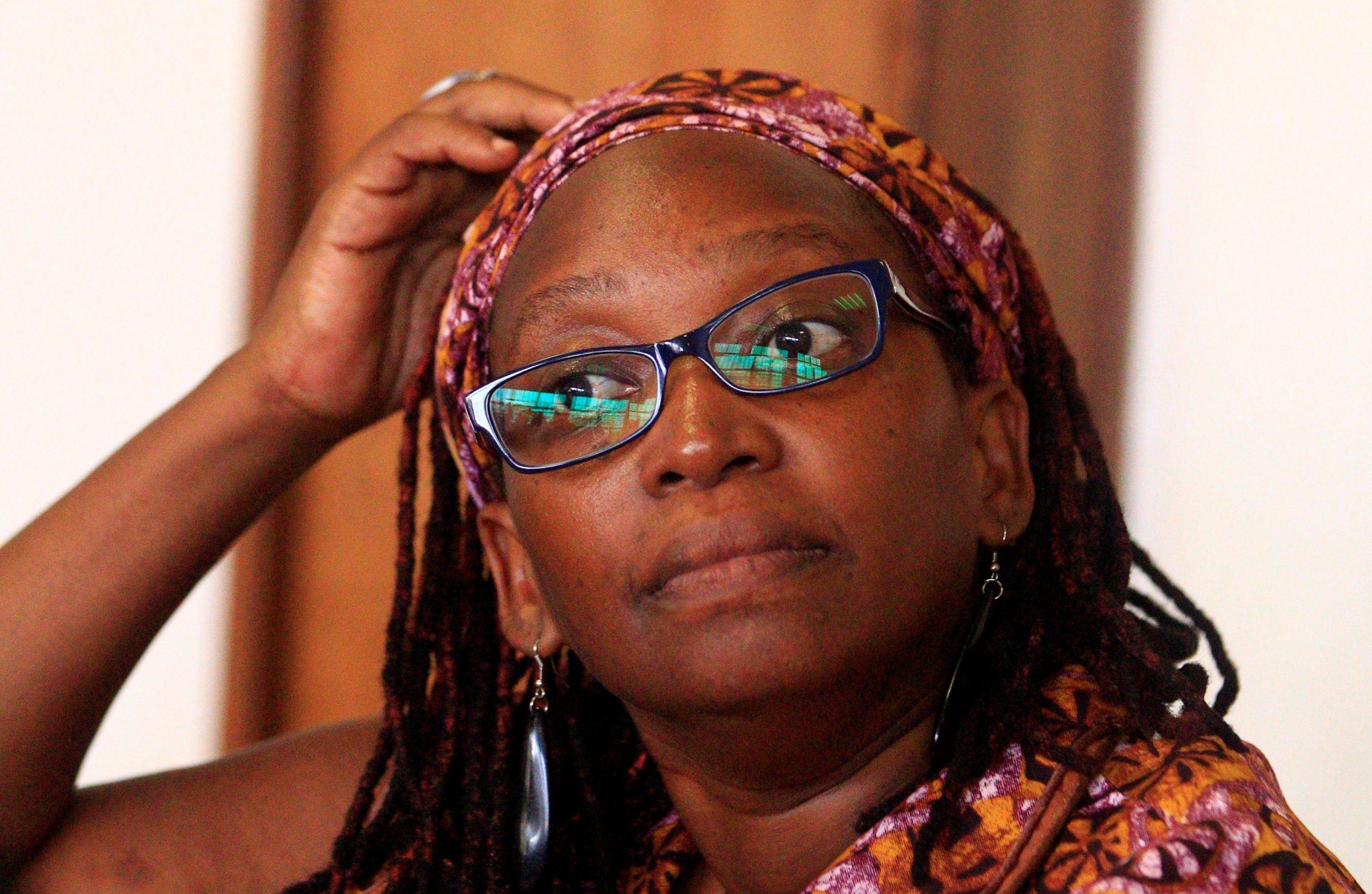A TrialWatch report released today concludes that the criminal trial of Stella Nyanzi in Uganda was not fair.
Dr. Nyanzi has now appealed her conviction following that trial. TrialWatch is releasing this report on the trial proceedings in advance of a decision on her appeal, following and replacing preliminary findings issued last year by the American Bar Association Center for Human Rights.
Dr. Nyanzi is an outspoken advocate for women’s and LGBTQ rights. In 2018, she posted a poem on Facebook that suggested Uganda would have been better off if President Museveni had not been born. She was then arrested and charged with ‘cyber harassment’ and offensive communication under the Computer Misuse Act. After a trial, monitored by TrialWatch, that did not meet international standards, Dr. Nyanzi was convicted and sentenced to 18 months in prison.
The TrialWatch Fairness Report authored by the American Bar Association Center for Human Rights finds that (1) Dr. Nyanzi “was prosecuted and sentenced to prison for exercising her right to freedom of expression” and (2) by curtailing her ability to call witnesses, the court violated her right to present a defense. It concludes by giving the trial a ‘D’ grade according to the TrialWatch Fairness Scale.
Background
The trial court convicted Dr. Nyanzi of the crime of “cyber harassment” under section 24 of the Computer Misuse Act and sentenced her to 18 months imprisonment, with credit for time served, as a result. It found that the requirements for “cyber harassment” had been met, in that Dr. Nyanzi’s poem had used language that was “shameful” and that “[t]he suggestions or proposals in the post could only be made by an immoral person hence one that was not properly brought up.” The court acquitted her of additional charges because of lack of evidence that her post had “disturbed” President Museveni or that she had issued it “repeatedly.”
Uganda’s Computer Misuse Act has been widely criticized and has been challenged as inconsistent with international human rights standards on freedom of speech. It provides for a maximum sentence of 3 years for “cyber harassment,” defined as using a computer to make “any request, suggestion or proposal which is obscene, lewd, lascivious or indecent.” It further defines “offensive communication” as “willfully and repeatedly us[ing] electronic communication to disturb or attempt[] to disturb the peace, quiet or right of privacy of any person with no purpose of legitimate communication.”
The TrialWatch Fairness Report concludes that “certain provisions of the Computer Misuse Act violate the right to freedom of expression on their face” because terms like “obscene, lewd, lascivious or indecent” are impermissibly vague. It goes on to find that the use of the Act to prosecute Dr. Nyanzi also violated her right to freedom of expression as applied, given that her speech that was the subject of the charges concerned a public figure—and criticism of government officials deserves particular protection under international human rights law.
The trial itself was flawed in significant respects. It began in a non-neutral manner, with the presiding magistrate remarking that “[t]he accused is rude and disrespectful,” echoing the charges against her. Then, after the prosecution had been given ample time to put on its case— approximately three months with numerous delays—the defense saw their case truncated. Over a series of hearings in June-July 2019 the court gave the defense only a fraction of the time—seven days over this period of approximately three weeks—to arrange for the testimony of nineteen witnesses. On this basis, the report concludes that the court “violated Dr. Nyanzi’s right to call and examine witnesses and, correspondingly, her right to adequate time and facilities for the preparation of a defense.”
Dr. Nyanzi has been subjected to repeated judicial harassment for the content of her speech. This appeal marks a critical opportunity for the Ugandan judiciary to respect her right to freedom of expression and give her case a fair hearing. CFJ calls upon the International Crimes Division of the High Court in Kololo to vacate her conviction and immediately release her from detention.
